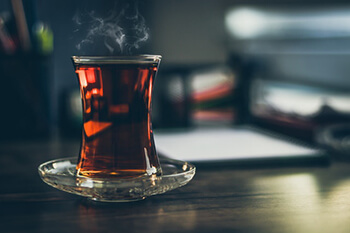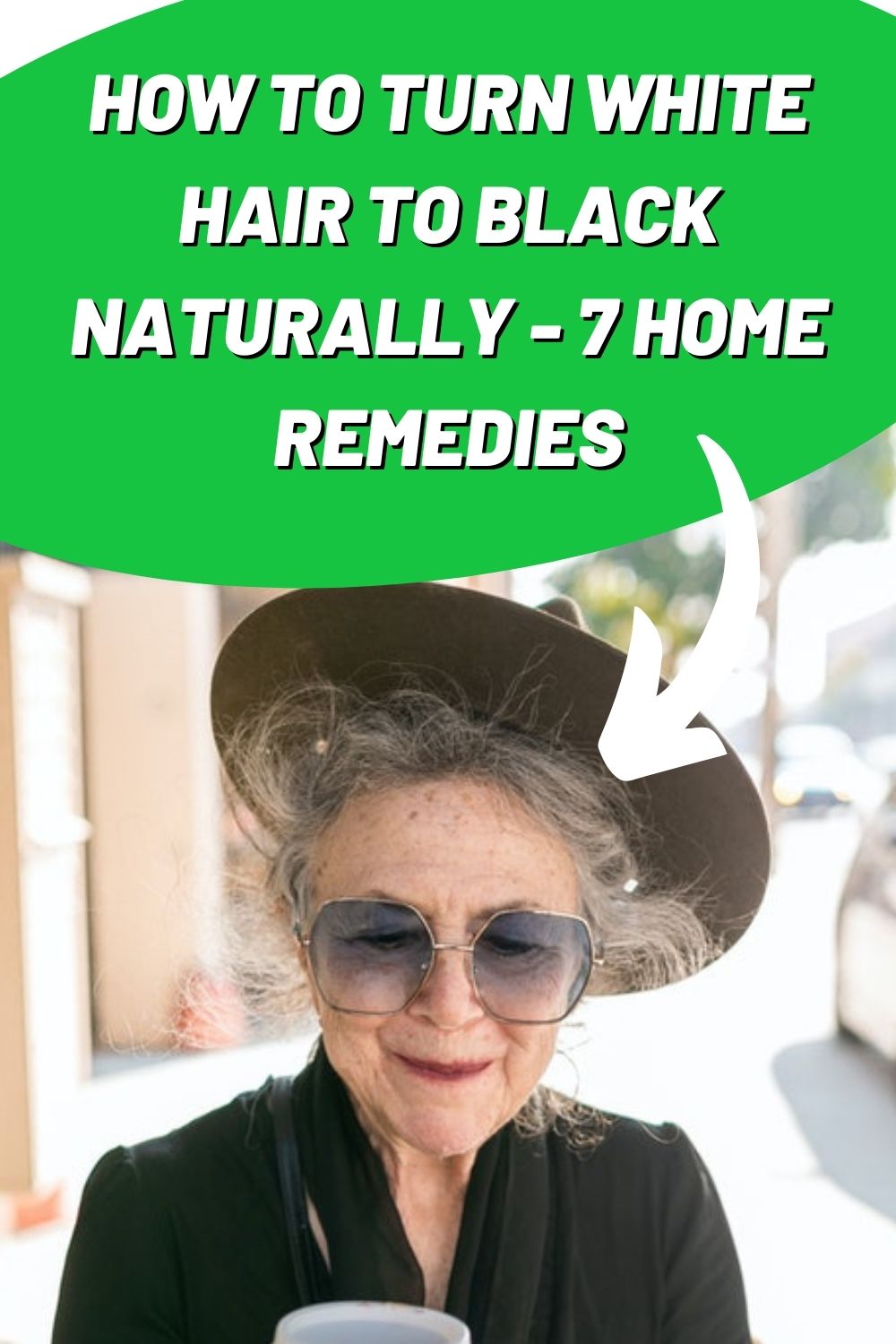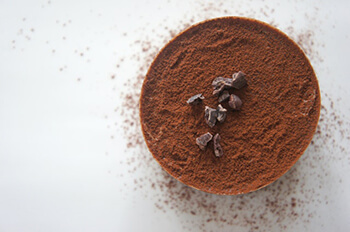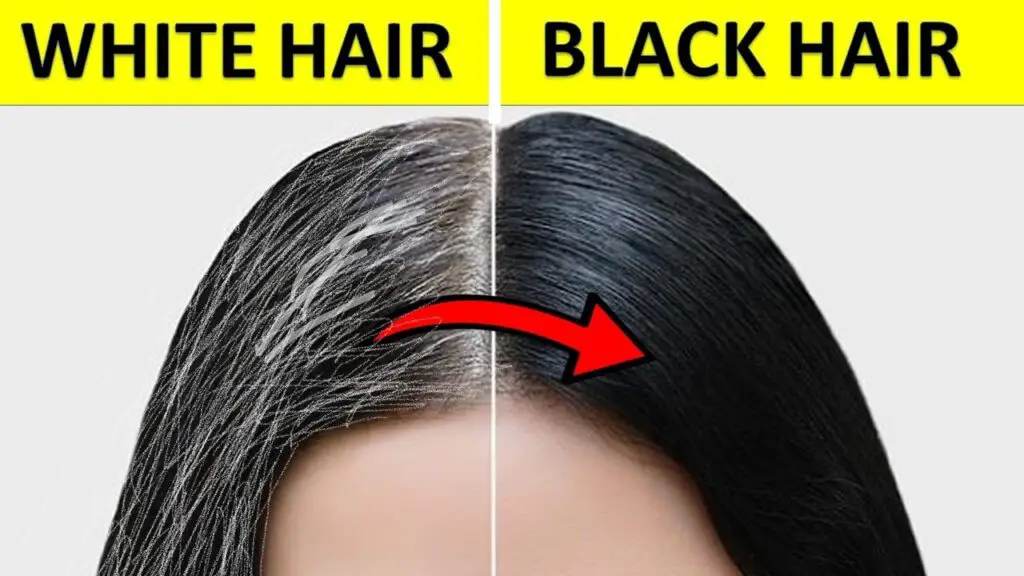Hair naturally turns from dark to white due to a loss of melanin, a natural pigment that determines hair color. As we age, our bodies slow down the production of melanin, causing hair to turn grey or white.
While white hair can be fixed by using chemical dyes, doing this at home can be risky, and can cause unnecessary damage to the hair. Home dyes damage the hair more than getting your hair professionally dyed in a salon. However, getting your hair professionally dyed is expensive, and isn't an option for everyone.
If you're looking to restore the black hair of your younger days, there are plenty of home remedies that aren't too expensive and don't involve using harsh chemicals that can permanently damage the hair.
What Causes White or Grey Hair?
Other than the loss of melanin due to age, there are several other factors that contribute to hair discoloration. Genetics can determine whether your hair will lose its melanin at a younger or older age. Stress levels may also affect the rate at which our hair loses its pigmentation.
Research shows that the body's fight or flight response may be responsible for hair turning white at an increased pace. When we experience stress, our fight or flight response releases norepinephrine, a chemical that increases our heart rate and blood pressure. Excess norepinephrine seeps into our hair follicles and affects melanin, causing grey or white hair.
As well as stress, many illnesses may also cause hair to turn grey or white at a more rapid pace. Vitiligo is a long-lasting condition that causes white patches on the skin and is caused by a lack of melanin. This can cause the hair above the affected skin to be devoid of color as well.
Hair may also turn white due to a vitamin B12 deficiency. Vitamin B12 is responsible for keeping the blood and nerve cells healthy. Vitamin B12 is found in animal proteins, so people following a vegan or vegetarian diet should make sure that they're taking a supplement to obtain this important supplement.
Hypothyroidism, or hyperthyroidism, may also be responsible for hair turning white or grey. Problems with the thyroid may cause a decrease in melanin production.
Finally, smoking has been shown to cause grey hair. The toxins found in cigarettes can affect hair follicles, causing hair loss and grey hair.
Home Remedies To Turn White Hair Black
There are several home remedies, with varying success rates, that work to turn white hair black. We've shared a few options that should help you save your hair from damage - and an expensive trip to the hair salon.
Black Tea

Black tea can be used as a natural hair dye if you're only dealing with a few white hairs. The tea contains tannins, which stains surfaces. This stain is what can be used to turn white hair black.
Keep in mind that black tea won't change hair color permanently. It's best to use black tea as a temporary solution for a few white hairs. You shouldn't expect a dramatic change, either, and it'll likely take many uses to turn your hair black or deep brown.
To use black tea to change hair color, take five tea bags per cup of water and leave to steep. Allow the tea to cool completely, then soak your hair in the tea. Leave on your hair for an hour minimum, preferably overnight. You can cover your hair in a shower cap to help prevent staining your pillows. The next morning, rinse your hair and let it dry. Repeat the process until you reach the desired color.
Henna

Henna is a natural dye prepared from the henna plant. It's most commonly used to create body art, but because of its ability to stain and its ease of use, it's also a great home remedy to turn hair black. Using henna to dye your hair should last longer than using black tea. It should also provide a stronger color.
It's incredibly easy to darken grey hair with henna. Simply mix the henna with water until a paste is formed. Cover this with cling film and leave overnight. Leaving the mixture overnight allows for the dye to be released and developed.
When the mixture is ready, drape a towel or old cotton t-shirt over your shoulders to avoid unwanted staining. Be sure to use gloves to prevent staining of your fingers. Clip your hair into sections, and, using a brush, paint on the mixture. Make sure that your hair is saturated in the mixture, or you'll end up with random undyed patches.
When all of your hair is coated in the henna mixture, place a shower cap on your head and leave overnight. Rinse, but don't follow up with shampoo or conditioner. Leave your hair to dry naturally.

Indigo
If your hair is still too light after using henna, indigo will help turn it black. After using henna to dye your hair, simply repeat the process with indigo.
Mix 200 grams of indigo with warm water to make a paste. Apply to your hair with gloves, making sure to fully saturate your hair for an even color. Place a shower cap on, and leave for a few hours to overnight, depending on the intensity you're looking for.
When it's time to wash off the dye, rinse your hair. It's recommended that you don't use shampoo or conditioner for two days following the application process, .as this could disrupt the development of the color.
Indigo staining should last around a month before needing a touch-up. Using indigo is an economical and easy means of dying your hair at home without using chemicals. Be sure to use high-quality ingredients, though, as synthetic indigo may be damaging to your hair and skin. If you feel a burning sensation at any point, remove the dye immediately.
Before using henna or indigo, it's important to try a small spot check on a patch behind the ear. This gives you time to look for a reaction to any of the ingredients. By doing the patch test behind your ear, it won't be noticeable if the entirety of your hair can't be dyed.
Coffee

Coffee is one of the most common household goods that most of us have in our cupboards. This makes it a convenient and affordable ingredient to use to turn hair black. Not only does coffee have the ability to dye white hair, but it also can provide different hues, depending on the type and strength that you use. As an added bonus, the caffeine in coffee can also stimulate hair growth and add to its shine.
To dye your hair with coffee, brew two cups of dark roast coffee. Add in two to three tablespoons of coffee grounds into the two cups, as well as two large dollops of conditioner. Mix and apply to damp hair. Let the mixture sit for around an hour with a shower cap on top, then rinse and repeat as many times as desired to reach a dark color.
Black Walnut Powder
Black walnut powder is a natural dye that has proven effective in dying the hair black. Use a ratio of one teaspoon of walnut powder to one cup of water to create the dye. Let the powder steep for one hour, then apply to your hair, making sure your strands are evenly covered.
Don't rinse your hair. Instead, allow it to naturally dry. Don't wash your hair for at least two days, either, to allow the dye to set in your hair follicles.
Cocoa Powder

Cocoa powder can be combined with black walnut powder or with coconut oil to make grey hair darker. However, cocoa powder won't produce a deep black color, which is why it's recommended that it's used alongside black walnut powder or indigo to achieve the desired shade.
To use cocoa powder to dye your hair, mix the powder with baby shampoo or your favourite conditioner. Be sure that the cocoa powder you use is dark and unsweetened. Every time you wash your hair, use your shampoo or conditioner containing the coco powder mixture. This will deposit color into your hair with each wash, and should prevent any noticeable white or grey hairs.
Continue to do this until you've achieved the desired color, then use every other wash or once weekly afterward to maintain the color.
Sage
Sage has the ability to darken hair color and cover up unwanted grey and white hairs. Be sure to use dry sage instead of fresh sage to achieve a natural dye.
To dye your hair, steep a cup of dried sage in a liter of water for two hours. When the mixture is cool, strain the sage from the water. Soak your hair in the water for around 20 minutes, then cover with a shower cap and leave for a minimum of two hours. Rinse your hair and repeat as many times as needed.
In Summary

It's easy to use home remedies to fix the appearance of white and grey hairs. Many items in our kitchen cabinets can be used in place of damaging chemicals, and these natural remedies are much cheaper than an expensive trip to the hair salon.
To turn grey hair black, the best methods include using henna mixed with indigo, or coffee grounds. However, there are a variety of different methods that can be used to achieve the desired color. Many of these natural ingredients can also help stimulate hair growth and limit new grey and white hairs from growing, so they can do more than just cover up your greys.
Coffee is one of the best home remedies for hair that has stunted growth, and using coconut oil as a natural conditioner may help preserve the hair dye longer than commercial conditioners containing sulfur and parabens.
When you're experimenting with homemade remedies, it's important to conduct patch tests to make sure that you're not allergic to any of the ingredients. It's better to be safe than sorry!


